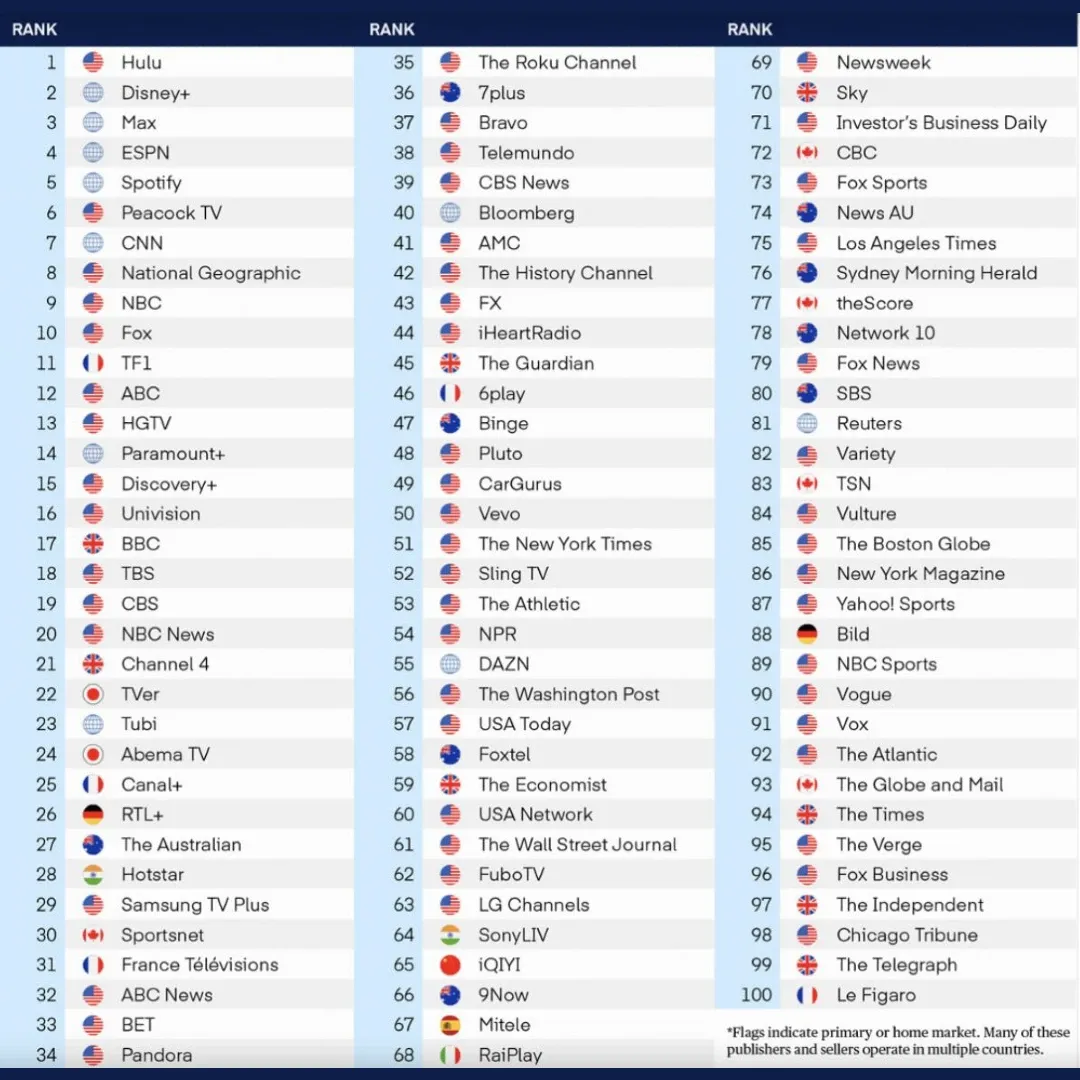
The Trade Desk, a leading demand-side platform (DSP) in the digital advertising space, sent ripples through the industry this month, with the release of its Top 100 Publishers list.
This list, positioned as a guide for navigating the premium internet, ranks publishers across various channels including web, TV, and audio. The announcement comes amidst a backdrop of increasing challenges for advertisers, including the deprecation of third-party cookies and growing concerns about online ad quality.
The Trade Desk's publisher ranking system offers several potential advantages for advertisers:
Improved Targeting and Efficiency: By prioritizing publishers based on ad experience, content quality, and audience demographics, the list can help advertisers reach relevant users with a higher chance of engagement. This can lead to improved campaign performance and a better return on investment (ROI).
Reduced Risk of Fraudulent Traffic: Advertisers constantly face the threat of fraudulent ad traffic, where their ads are shown to bots or fake users rather than real potential customers. By focusing on reputable publishers with high transparency standards, advertisers can potentially mitigate this risk.
Simplified Publisher Selection: With a vast array of online publishers to choose from, selecting the right partners can be a daunting task for advertisers. The Trade Desk's list provides a curated selection of publishers with established track records, potentially streamlining the selection process.
While the list offers potential benefits, some industry experts raise concerns:
Lack of Transparency: The Trade Desk has not publicly disclosed the exact weighting of each ranking factor or the specific methodology used. This lack of transparency raises questions about potential biases and the replicability of the results.
Potential for Bias: The Trade Desk is a major player in the online advertising ecosystem, and some experts worry the list may favor publishers that are more integrated with its platform or advertising solutions.
Exclusion of Niche Publishers: As the list prioritizes large, well-defined audiences, publishers with smaller, niche audiences who produce high-quality content may be overlooked, potentially limiting advertiser options.
Power Grab Concerns: Some industry voices see this initiative as a power grab by The Trade Desk, potentially positioning them as a gatekeeper to premium publishers within the open internet and potentially leading to a walled garden effect similar to those of major ad tech players like Google and Facebook.
The Trade Desk's publisher ranking system has generated mixed reactions within the advertising industry.
Marketers: Many marketing professionals see the list as a valuable resource, potentially aiding in identifying high-quality media partners with engaged audiences.
Publishers: Some publishers are concerned about the potential for bias and the lack of transparency in the ranking methodology. Others see it as an opportunity to showcase.

